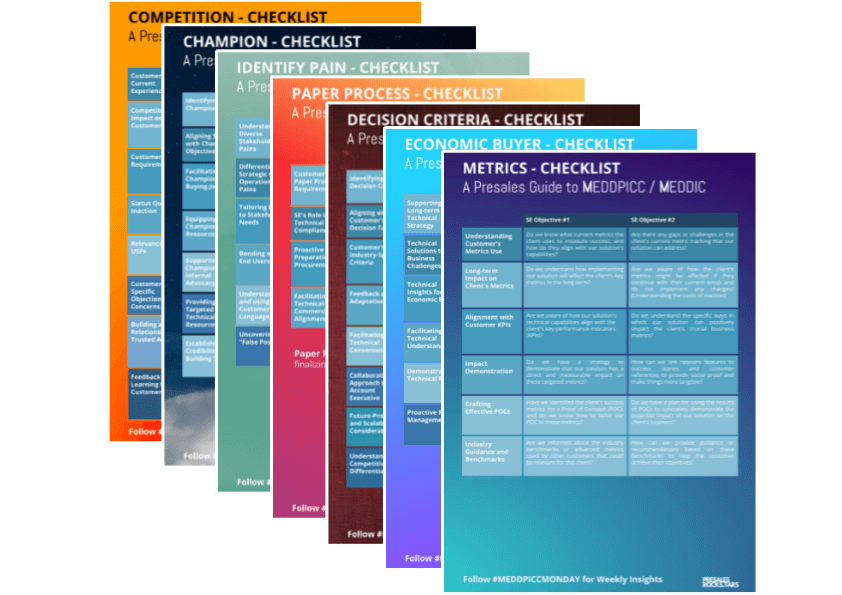Presales Discovery Call gone Wrong
The discovery call is undoubtedly one of the single most important steps in our sales cycle and can easily make or break our deals.
I’ve been through hundreds of discovery sessions in my sales career and read through a dozen frameworks to improve my interrogation skills.
I became quickly better at asking the right questions and actively listening to my clients.
And at one point in time, I felt like I was truly capable of understanding their objectives, needs and business issues.
But after quite a while – and without even noticing – my performance started to decline.
I thought that I had gathered all relevant information during the discovery call and could address their pain points – but had the sensation that my clients felt more and more disconnect during my demo sessions.
It didn’t really click with my clients anymore. They confirmed that they could see the benefits of using our solution. But this special something was missing.
It took me quite a while to understand that this wasn’t a demo issue and that I hadn’t lost my ability to present our software in a meaningful way.
The root cause was a behaviour that slowly but steadily crept its way into my discovery calls.
At this point, I thought I had seen it all and knew better about my client’s situation than they did.
And as a result, I started to ask suggestive questions.
Instead of exploring my clients‘ motives and business objectives by asking them open-ended questions, I started to leave a trail of breadcrumbs.
I followed every question with a couple of assumptions that I thought would apply to my clients‘ situation.
And all they had to do was to repeat and confirm my guesses – without starting an in-depth thought process.
Rather than sharing their own perspective and description of their situation, they simply parroted my words.
But this is as wrong as it gets – because it is supposed to be the other way around!
It is critical for us to pick up our clients‘ language and apply this to all our future conversations.
It is key to make the demo etc more personal, more real. And use their lingo to make it stick.
But because I’ve been asking suggestive questions, my clients never had the opportunity to share their version of the situation and express themselves in their own language.
My assumptions might have been right. And in most cases, I was able to get to their underlying buying motives.
Yet, I had difficulties selling to them because I was unable to connect with them on a deeper level.
I could address their business needs but wasn’t able to build this deep relationship. Simply because I did not speak their language.
Leading the witness during discovery is a mistake that easily happens. Especially to more senior presales consultants and solution engineers.
But its consequences are fatal.
It is well-meant, but in reality, it is taking you the opportunity to better understand your client and learn to speak their language.
Closely observe your questioning techniques every once in a while and look out for those little changes that can easily creep into your discovery.
To summarize: it is critical to pick-up and speak your clients‘ language. Let them do the thinking and leave them enough space to express themselves in their own words.
As soon as you start making assumptions, you are in danger of leading the witness – and jeopardizing the deal.





